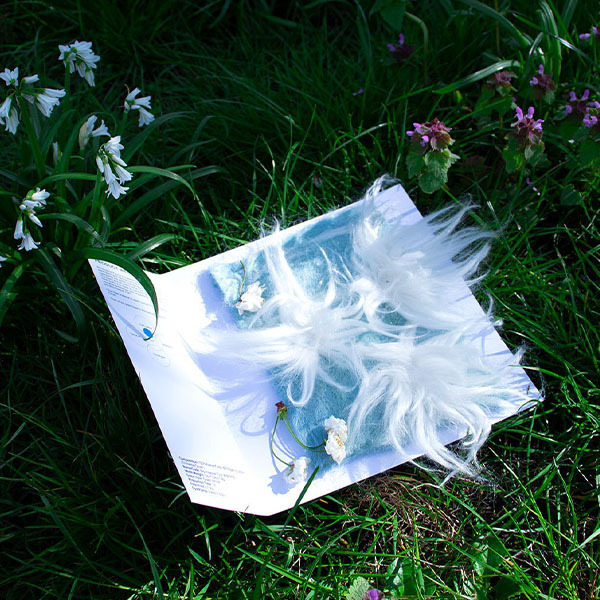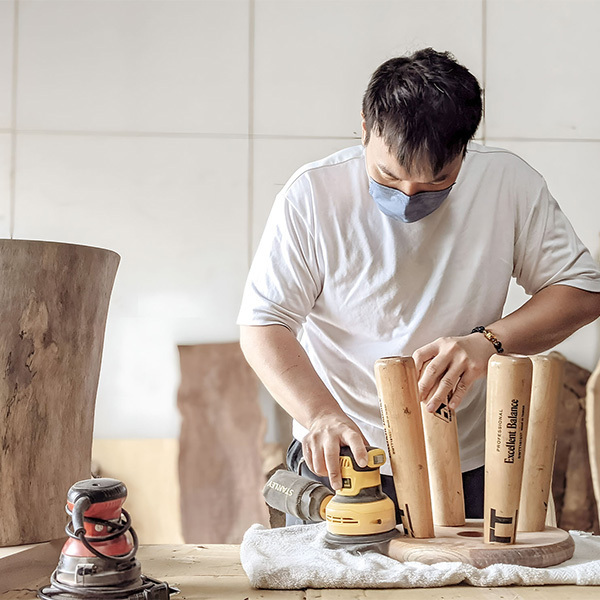Sea vegetable Circulation
SEA VEGETABLE COMPANY
DiFOLD
DiFOLD is on a mission to fight single-use packaging and spread ReUse. We own a utility patent that covers a wide spectrum of collapsible geometrical patterns that fold like origami, and this allows us to create diverse, space-saving foldable products - from bottles to barrels.
We start with a pioneering lifestyle product - the Origami Bottle. It is the first foldable bottle made of PLANT-based material. The material is made of sustainably sourced rapeseed and is 100% food-safe and BPA/BPS-free. With 750 ml in capacity, the bottle magically folds down at 90% of its volume, offering a unique blend of compactness and rigidity.
Most collapsible bottles are made of silicone and are soft, flimsy and unstable. The Origami Bottle stands out with its rigidity when unfolded, offering the sturdiness and stability of a standard bottle while being foldable. It’s perfect for a variety of uses - from daily commuting to travelling and outdoor adventures. We are proud to have garnered some of the most prestigious recognitions, such as the Red Dot Award, iF Design Award and German Sustainability Design Award.
Our vision extends beyond just one product. We aim to revolutionise the packaging industry with a diverse portfolio of foldable items - from everyday bottles and cups to larger containers like kegs and barrels.
In essence, the Origami Bottle is more than just a novel sustainable bottle – it symbolizes a commitment to change the single-use culture, as we say: "a small bottle for humans and a big step in the Revolution of packaging." DiFOLD's journey is just beginning, and we're dedicated to paving the way for a future where reuse is not just an option but a norm.
DiFOLD is on a mission to fight single-use packaging and spread ReUse. We own a utility patent that covers a wide spectrum of collapsible geometrical patterns that fold like origami, and this allows us to create diverse, space-saving foldable products - from bottles to barrels.
We start with a pioneering lifestyle product - the Origami Bottle. It is the first foldable bottle made of PLANT-based material. The material is made of sustainably sourced rapeseed and is 100% food-safe and BPA/BPS-free. With 750 ml in capacity, the bottle magically folds down at 90% of its volume, offering a unique blend of compactness and rigidity.
Most collapsible bottles are made of silicone and are soft, flimsy and unstable. The Origami Bottle stands out with its rigidity when unfolded, offering the sturdiness and stability of a standard bottle while being foldable. It’s perfect for a variety of uses - from daily commuting to travelling and outdoor adventures. We are proud to have garnered some of the most prestigious recognitions, such as the Red Dot Award, iF Design Award and German Sustainability Design Award.
Our vision extends beyond just one product. We aim to revolutionise the packaging industry with a diverse portfolio of foldable items - from everyday bottles and cups to larger containers like kegs and barrels.
In essence, the Origami Bottle is more than just a novel sustainable bottle – it symbolizes a commitment to change the single-use culture, as we say: "a small bottle for humans and a big step in the Revolution of packaging." DiFOLD's journey is just beginning, and we're dedicated to paving the way for a future where ReUse is not just an option but a norm.
SPACE 10 Co-founder & Director of Strategy
The Origami Bottle is one of my Coup de Coeur this year. Not only because it is the first foldable bottle made of 100% plants, but because it might be the “bottle that hides the forest”. Sure, the Origami Bottle is a smart, clean and innovative product, with great design and the potential to change our single use culture. I love that it only takes a fraction of the space when empty and folded - very practical on the move. Hopefully higher volumes and future partnerships with brands, suppliers and retailers will help bring its price point down. But beyond the bottle, it is the proprietary foldable geometrical patterns that holds a transformational potential. It could be used to create a new generation of reusable packaging and containers, leading to space and energy saving in transports, and even facilitate reverse logistics which are so important in circular economies.
MATR
MATR
TATAMI ReFAB PROJECT
HONOKA
Dodola
Pjorkkala
re:Mix, the circular kitchen mixer for your own glass jars
Open Funk
CirculaRElectronics by VERTMONDE
VERTMONDE ECUADOR
MateRe - DPP
digglue. inc
Transparent Solar Windows
VP for Ubiquitous Energy
Project "TSUMUGI"
General Incorporated Association Upcycle
The Mother Reef
Oyster Heaven
Anam PALF® by Ananas Anam
Ananas Anam
Co-producing value-added, biodegradable plastics and additives from agricultural byproducts
Ourobio
Infinity Toy Box
Infinity Toy Box
Lichens as an bioindicators of "Well-being"
Yixuan Wang (collaborated with Julio Obscura)
Tejiendo la calle
Tejiendo la calle
comvey Share-Bag
Comvey. Inc. CEO
Creating a sustainable society. "Circular Action in daily life"
株式会社ECOMMIT ブランド戦略部 広報ブランディンググループ 所属
Hair Recycle
Dung Dung asbl
Lalaloop Reusable cup system for a circular city
OysterAble co., ltd.

Bio-invasive Textile Library
Bio-invasive Lab Ltd/ Central Saint Martin-Ma Biodesign
MateRe
digglue inc.
Briiv Air Filter
Five Create Ltd.
Gravity Wave - Plastic Free Oceans
GRAVITY WAVE
Seaweed Dialogues
Alberte Holmø Bojesen
Somewhere, Sometime
obake
